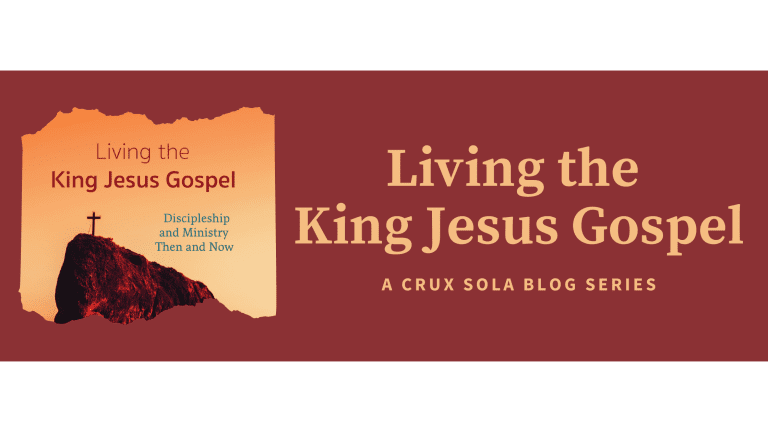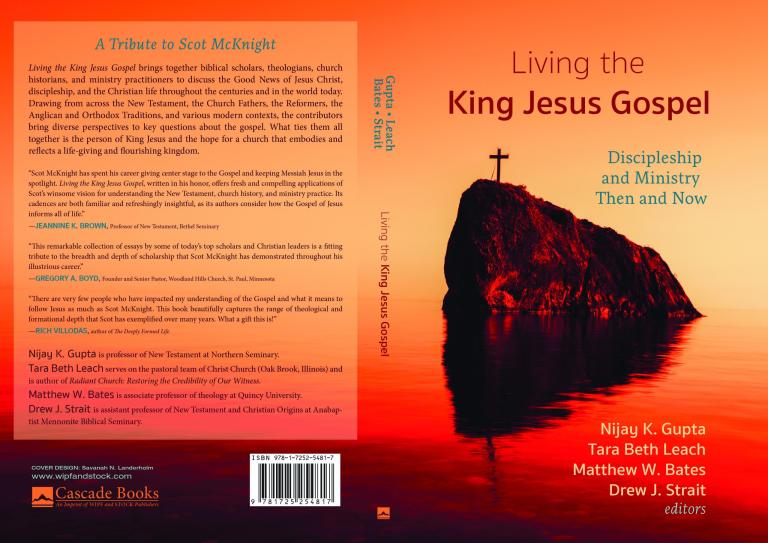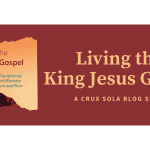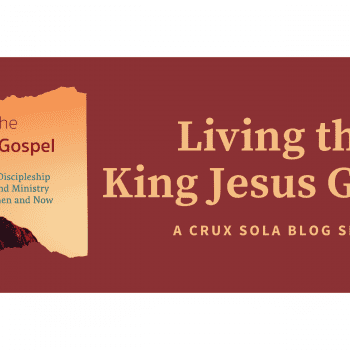
This is a blog series on some of the participants in the new book, Living the King Jesus Gospel. Today we have Dr. Drew Strait, professor (Anabaptist Mennonite Biblical Seminary) and fellow editor for this tribute book for our friend Scot McKnight.
How do you know Scot?
I wrote a comment on Scot’s blog in 2009 as a graduate student at TEDS. One hour later I got a one-liner email that said: “where do you live brother?” Scot proceeded to invite me to lunch at Tre Kronor across the street from North Park University. For the next five years we met regularly to talk New Testament studies and ministry. Scot became a friend and academic mentor who profoundly impacted my life and scholarly trajectory.
How has else has Scot made an impact on you?
Around 2014 I helped Scot prepare some lectures on the speeches of Acts for a conference in South Africa. When he came home he said, “Drew, you have to do your PhD in South Africa.” Two years later I started my PhD at the University of Pretoria with a full-tuition bursary while working with Gert Steyn and David Moessner. My wife and I moved to Pretoria for four months and then I came home and adjuncted at North Park University with Scot while pastoring in Chicago. Throughout my whole program Scot went out of his way to support me and open up opportunities for me. Studying in South Africa was the best decision I ever made in my academic journey and Scot was a huge part of the entire journey. Without Scot’s mentoring and benefaction I doubt I would have ever fulfilled my dream of becoming a New Testament professor. God is good!
For your book chapter, What subject did you choose and why?
My chapter, titled, “From Salvation Culture to Peace Culture: Luke’s Gospeling of Christ’s Peace,” attempts to honor Scot’s commitment to peace/peacemaking by animating the peace dimensions of the King Jesus Gospel. If Scot is right that Christology should come before soteriology, and that the four gospels are blueprints for gospeling the gospel, then where does peace fit into our proclamation of Jesus’s life, death, and resurrection? Put another way, if peace was a major social distinctive of the earliest Christians, then why don’t we talk more about peace when we proclaim the gospel today? To interrogate these questions, I trace Luke’s peace template in his gospel and compare Jesus’s peace emphasis to Rome’s model of peace through coercion–or what I call “peace-ification.” My essay shows how Jesus’s model of kingship disorients Roman notions of power and invites the church to incarnate a culture of peace/peacemaking that is cosmic, corporate, restorative, reparative, transformative, and justice-making.
What is your vocation? And how do you see yourself attempting to “Live the King Jesus Gospel” in that context?
I teach New Testament at Anabaptist Mennonite Biblical Seminary in Indiana. As a professor who serves the global church I’m committed to empowering students to live the King Jesus Gospel in community by creatively and, at times, imaginatively incarnating the teachings of Jesus on earth.
Do you have a favorite Scot McKnight book?
Tough question–there are so many! For me it’s a toss up between the “King Jesus Gospel” and his commentary on Matthew’s Sermon on the Mount. I must say, though, that the “King Jesus Gospel” was hugely influential on my dissertation project that examined the speeches of Acts and their political attitude toward Roman power.
Any personal stories about Scot you want to share?
During grad school Scot always paid for our lunches together, including amazing breakfasts at academic conferences. Scot knew my wife and I were both PhD students and that we didn’t have much money at the time. It was a gesture of Christian love that left an imprint on me–simple but profound.
In terms of writing, what are you working on next?
My next book is titled, “Pax of the Apostles: Cosmology, Empire, Mission.” The book reexamines Luke’s and Paul’s attitude toward the pax Romana, along with the ways the church disrupted pax through coercion (especially military domination, enslavement, and xenophobia).
If you want to check out some of Gray’s other writings, see below! And don’t forget to order Living the King Jesus Gospel.















